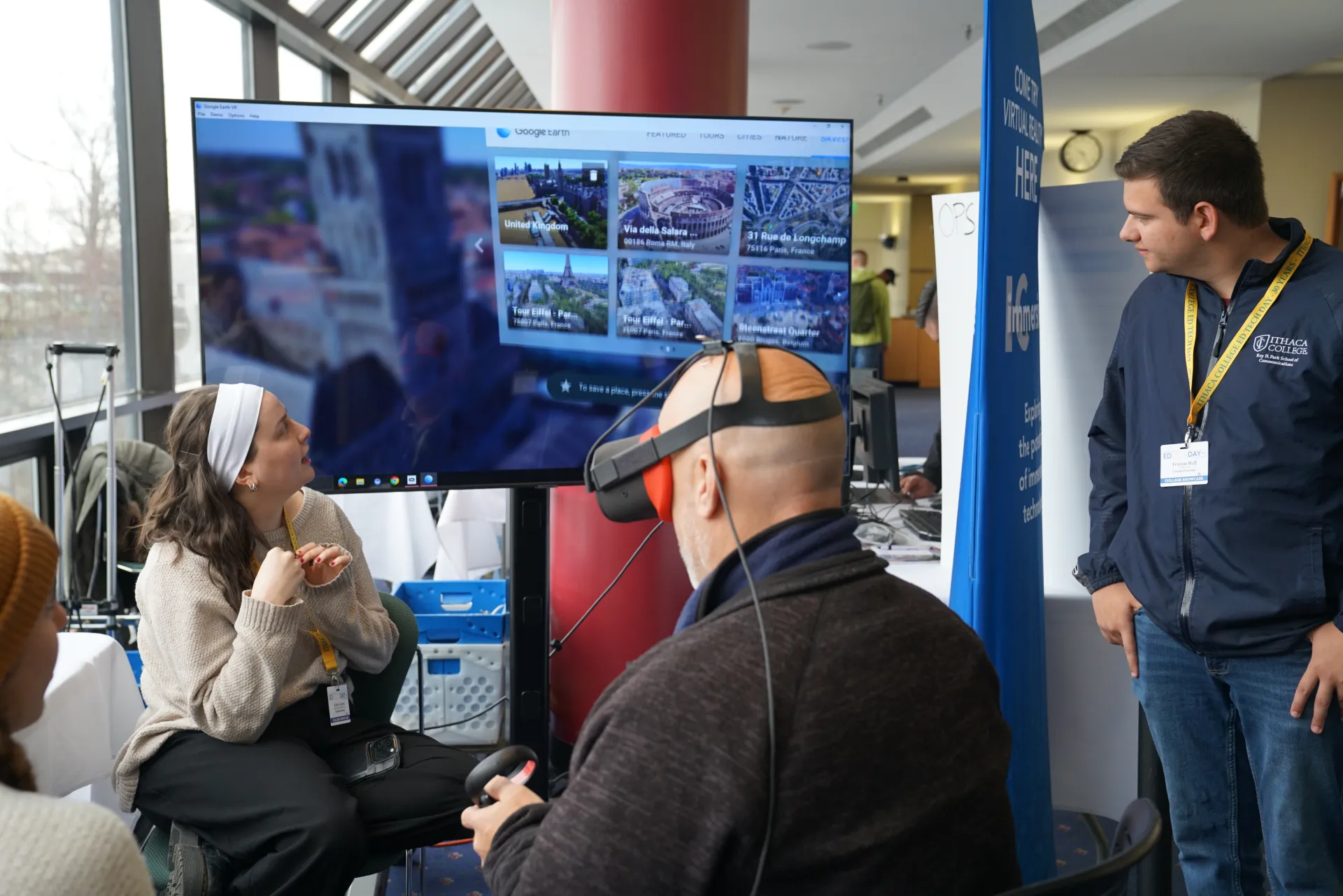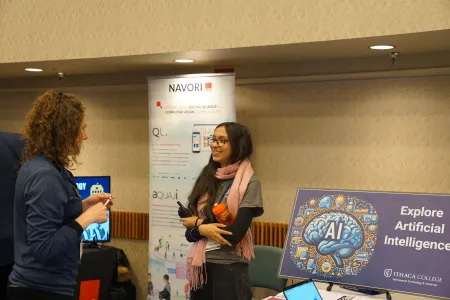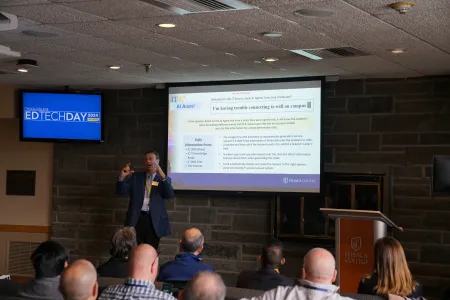Marking a milestone year, Ithaca College played host to Educational Technology Day for the 30th time this spring. Back by popular demand after a four-year hiatus due to the pandemic, the event drew more than 1,000 attendees from across upstate New York to explore uses of technology in higher education.
David Weil '87, MS '89, vice president and chief information and analytics officer, who spearheaded Ed Tech Day, was excited to be bringing it to Ithaca College once again. Last year, when discussing with colleagues around the state whether the college could continue to host, he discovered that they really missed it.
“I always knew that it was a place that people looked forward to coming to and interacting,” he said. “I didn't totally appreciate the value that others were getting from it. It is unusual for a technology event to run for 30 years, so we are proud of that.”
This year’s offerings, where more than 60 national and regional hardware and software vendors showcased their latest innovations, were much different than those at the inaugural event. In 1991, sessions included “Desktop Publishing,” “DOS 4.0,” and the “Multimedia Classroom of Tomorrow”—which, it was stated, would allow faculty to “blend together several media . . . including sound, still graphics, text, and animation.”


